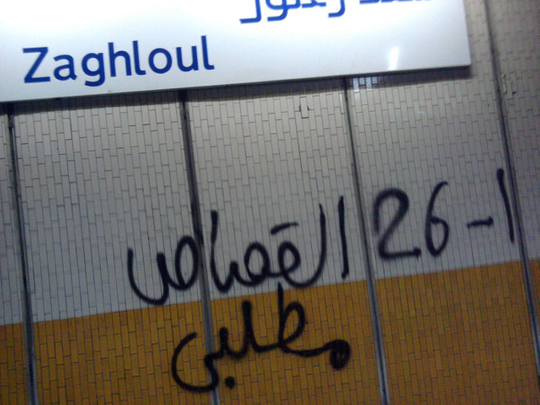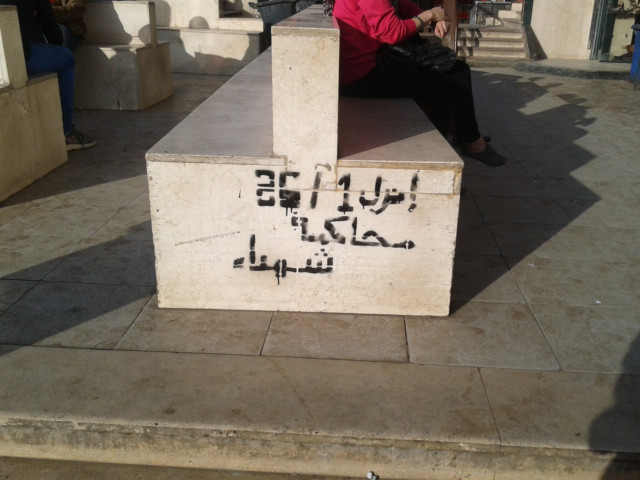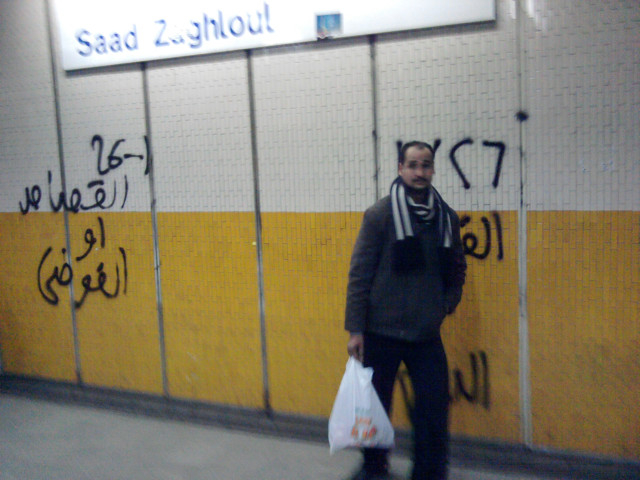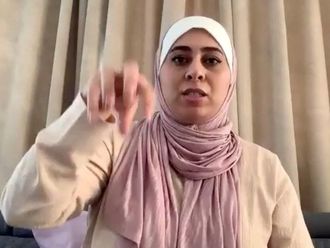
Cairo: “Do you think January 26 will pass peacefully?” This question has dominated talk shows in Egypt on the eve of a long-awaited ruling on the nation’s worst football disaster on Saturday.
In February last year, 74 football fans were killed and 254 injured in rioting following a match between hosts Al Masry and Egypt’s top team Al Ahly in the coastal city of Port Saeed.
Seventy-three suspects, including nine policemen, were arrested and put on trial on charges ranging from negligence of duty to involvement in the killings.
Domestic football competitions were suspended in the aftermath of the tragedy. Under pressure from militant fans known as the ultras, authorities have delayed the resumption of the matches several times.
“Saturday will be a decisive day in the lives of many people and may be the last day in the lives of others,” the ultras of Al Ahly said in an online statement two days before the scheduled verdict.
“Death will be the fate of everyone involved in plotting and carrying out the Port Saeed massacre.”
The hardcore fans, mostly youth, this week launched in Cairo what they called “start-of-anger protests”, warning that they will avenge the Port Saeed deaths if the court ruling does not deliver “fair retribution”.
On Wednesday, thousands of the ultras encircled the Egyptian Stock Exchange building in Cairo before blocking the city’s Underground service for an hour.
In the lead-up to the verdict day, the ultras have spray-painted graffiti on walls and metro stations. They read: ‘Retribution or Chaos’ and ‘Retribution is my demand’.
They also vowed to camp outside the courthouse early on Saturday and await the verdict.
The ultras played a key role in the mass protests that forced Hosni Mubarak to step down nearly two years ago and have since called for “purging” the police.
In an apparent bid to allay their anger, President Mohammad Mursi this week issued a decree, designating the Port Saeed fatalities as “martyrs of the revolution” — a move entitling the victims’ families to state compensation.
“The decree is overdue,” said Hany Abdul Rahim, a lawyer. “It is a political move timed to back up an official demand from prosecution to re-open investigations in the case,” he told Gulf News.
“The court has the authority to postpone announcing the ruling, but this will delay the explosion and not defuse it.”
Earlier this week, Prosecutor-General Talaat Abdullah, appointed by Mursi, requested the court, handling the case to extend its hearings, citing new evidence.
“The alleged new evidence is a political manouevre to contain public anger,” said Al Badr Farghali, a former MP for Port Saeed. “Why has the public prosecutor waited until few days before the ruling to come up with the new evidence?” he told the private Dream TV.
Football fans in Port Saeed have, meanwhile, said they will also gather outside the courthouse on Saturday, fueling fears about bloody clashes with those of Cairo.
The Port Saeed’s people have frequently denied involvement in the stadium deaths, blaming them on allegedly paid hooligans from outside the city and Mubarak loyalists.
The newly appointed Interior Minister Mohammad Ebrahim has recently admitted concerns about acts of violence following the verdict pronouncement.
He said he has approached the Justice Ministry to keep defendants inside a high-security prison and not take them to the court on Saturday to head off the possibility they may be attacked by the ultras.
According to him, the defendants will learn about the rulings via a TV feed telecasting live the session into their prison.
There is no word yet on the final arrangement.














